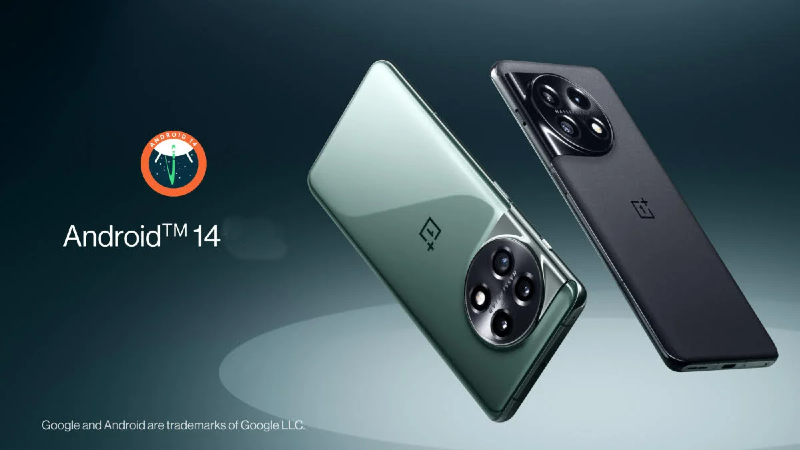The Dawn of Android 14: An In-depth Review of the New Features and Compatible Devices

On February 8, 2023, Google unveiled the next generation of their operating system, Android 14. It was soon followed by the release of the first Developer Preview. The final release of Android 14 was officially rolled out on October 4, together with the eagerly awaited Pixel 8 and Pixel 8 Pro, extending its availability to other specially selected devices.
Understanding Android 14: Device Compatibility
Unlike iOS, where practically all devices produced in the last half-decade receive the new update instantly, Android proves to be rather more capricious, with many devices having to wait several months for a customized update. Compatibility can be rather erratic and sometimes unpredictable.
Nevertheless, if you possess a recently released Google Pixel phone, you should already have received the update. Android 14 currently supports the Pixel 7 series, Pixel 6 series (including Pixel 6a), Pixel 5 series, and Pixel 4a 5G phones. The Pixel 8 and Pixel 8 Pro phones are pre-fitted with Android 14 straight out of the box. Unfortunately, older versions of Pixel phones will not be able to get the Android 14 update.
As of now, the aforementioned phones are the only ones supporting Android 14. However, one can expect many more to join in, as several Samsung phones are likely to receive the upgrade soon. Samsung's four-year policy of operating system upgrades is applicable to its latest models, making them eligible for the Android 14 update. Furthermore, other popular models such as the OnePlus 11, Sony Xperia 1 V, and the Xiaomi 12 are all slated to receive the Android 14 upgrade.
Interestingly, the relatively obscure brand Nothing Phone has also confirmed its participation in the Android 14 Beta. Despite its size and anticipated sluggishness with updates, the brand's CEO, Carl Pei, reassured that they’re committed to offering the best user experience in close collaboration with Google.
However, the exact rollout date for Android 14 in these phones may vary due to various manufacturers' need to tweak the software before deploying it.
Decoding Android 14: New Features
Google has announced tightened controls over accessibility services, limiting their use to apps that genuinely cater to users with certain disabilities. Apps on the Play Store intending to leverage accessibility services must truthfully disclose their purpose. For instance, Google's Talkback app, which vocalizes screen content, serves an authentic accessibility requirement. This revamped approach prevents apps from manipulating disability mitigation tools or shortcuts to deceive users into unauthorized financial transactions. However, this restricts customization hacks previously reliant on accessibility services. As Google makes yet another attempt to secure its accessibility services, it appears the firm’s developers are equipped for the challenge.
Android 14 introduces upgraded passkey support, a secure alternative to passwords operating via encryption keys. Earlier versions necessitated storing these keys within Google's password manager. However, with the new roll-out, third-party password managers, including Dashlane and LastPass, can serve as the key repository, eliminating reliance on Google's security system.
The updated version boasts regional preferences, allowing users to set preferred temperature units, weekly start dates, calendar styles, and numeral systems applied across various apps. Another feature, Health Connect, streamlines data between your healthcare and fitness apps and devices, offering consolidated data viewing instead of operating as a separate app.
Some highlights of the Android 14 include 'cloned apps,' which allow users to generate a second instance of an app, enabling simultaneous log-ins with two different accounts. This feature, previously exclusive to certain smartphones, is now part of the standard Android package.
In its accessibility-centric development, Android 14 offers non-linear font scaling up to 200%, aiding users with visual impairment without disrupting practicality.
In the fight against bloatware and unwanted apps, Android 14 allows users to view a list of all apps installed in the background without their knowledge. On a lighter note, it also introduces the Magic Compose, an AI-assisted response suggestion feature in Google Messages, and a range of emoji wallpapers for Pixel users.
Android 14's auto-confirm PINs feature does away with the need for manual confirmation, while improved data-sharing details provide users with a comprehensive understanding of data permissions at a glance. For those with hearing impairments, Android 14 leverages the camera flash as a notification light, broadening its accessibility features.
Android 14 has truly aimed to fine-tune, customize, and secure the Android user's experience fervently, making it an upgrade to eagerly anticipate.
Most Popular
-
![]() Top Apps
Unlocking New Horizons: Strategic Codes and Dynamic Gameplay in Etheria Restart
In a realm where adventure meets opportunity, enthusiasts find themselves immersed in an enticing un...
Read more
Top Apps
Unlocking New Horizons: Strategic Codes and Dynamic Gameplay in Etheria Restart
In a realm where adventure meets opportunity, enthusiasts find themselves immersed in an enticing un...
Read more
-
![]() News
Unlock Legendary Thrills: Free Download and Massive Series Savings
This is an opportunity that brings together excitement and savings for fans of an iconic looter shoo...
Read more
News
Unlock Legendary Thrills: Free Download and Massive Series Savings
This is an opportunity that brings together excitement and savings for fans of an iconic looter shoo...
Read more
-
![]() News
Del Toro’s New Spin on Frankenstein: A Journey of Emotion and Reflection
This update introduces a fresh take on a classic narrative, as Oscar Isaac shares some intriguing de...
Read more
News
Del Toro’s New Spin on Frankenstein: A Journey of Emotion and Reflection
This update introduces a fresh take on a classic narrative, as Oscar Isaac shares some intriguing de...
Read more


